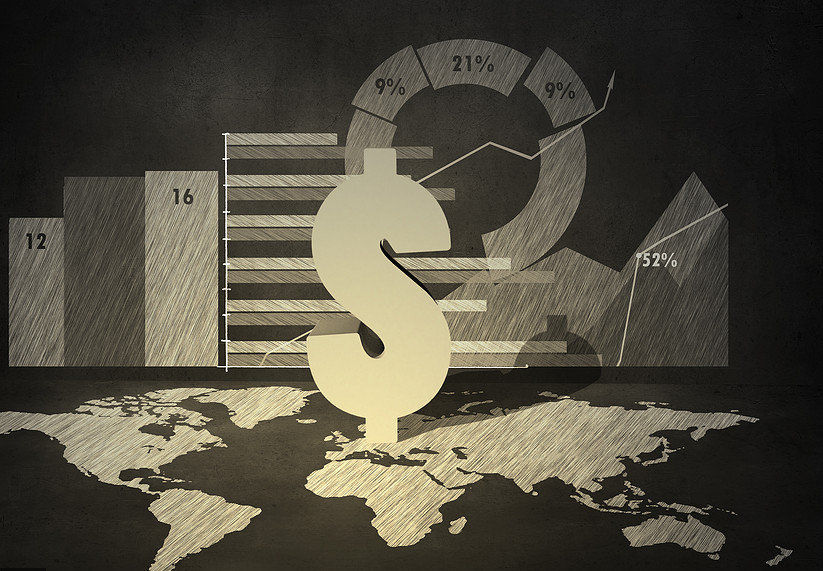Gulf Diversification Efforts Bear Fruit
Advertisements
The Gulf Cooperation Council (GCC) countries—comprising Saudi Arabia, the UAE, Qatar, Kuwait, Bahrain, and Oman—find themselves navigating a complex landscape shaped by fluctuating global energy prices and strategic decisions concerning oil production reductions led by OPEC and its alliesAs we peer into the economic fabric of these nations in 2024, it's evident that while the oil sector continues to contract, efforts toward economic diversification are beginning to pay dividends, particularly in non-oil industries.
According to a World Bank report released in December, the GCC's economy is projected to grow by 1.6% in 2024. This growth, however, is shadowed by a predicted 2% decline in oil revenues due to ongoing production cuts under the OPEC+ agreement and persistent volatility in global oil pricesIn the first half of the year, the oil sectors in GCC states faced a contraction of 7.5%, with substantial downturns in Saudi Arabia, Kuwait, Oman, and Bahrain
Interestingly, Qatar's oil industry appears to be holding steady amidst these challenges, while the UAE has managed to offset declines in oil output with increases in its gas production.
The region is witnessing a significant shift towards bolstering economic resilience through diversificationThe non-oil sector showcased remarkable vigor, recording a growth of 3.8% in the first half of the year, with an anticipated annual growth rate of 3.7%. The International Monetary Fund (IMF) has further identified promising growth trajectories for the non-oil sectors, forecasting increases of 3.7% in 2024 and 4% in 2025. For instance, the UAE continues to lead in diversification, primarily driven by a surge in its financial services and logistics sectorsThe first quarter of this year saw the UAE's non-oil economy sustaining a robust growth rate of 4%, a testament to its successful service-oriented diversification strategy
- ISM: US Factory Activity Shrinks Again in December
- Tesla's Annual Sales Experience First Decline
- Microsoft to Invest $80 Billion in AI
- BYD: The Arrival of Market Value Management
- The Effects of Rising US Productivity
Meanwhile, Saudi Arabia's ambitious Vision 2030 agenda has catalyzed substantial investments in tourism and renewable energy, fostering a thriving retail and hospitality sector that recorded a growth rate of 4.4% in the second quarter.
The fiscal landscapes across the GCC countries reveal a complex picture shaped by increased government expenditure juxtaposed with declining oil revenuesSaudi Arabia and Kuwait are grappling with significant fiscal pressures, exacerbating their budget deficits, while Bahrain too faces considerable financial challengesConversely, the UAE has maintained a relatively strong fiscal position, attributed to reduced government spending and the introduction of corporate taxes that have diversified its revenue streamsNonetheless, with the continuation of OPEC+ production cuts, coupled with ongoing fiscal demands and subdued oil prices, the GCC economies are likely to encounter hurdles in stabilizing their fiscal outlooks.
Moreover, the issue of growing current account deficits is a pressing concern
As oil export revenues dwindle and imports rise, nations, such as Saudi Arabia and Kuwait, find their current accounts under strainOn the other hand, the UAE, Oman, Bahrain, and Qatar have either maintained or strengthened their surpluses, with the UAE benefiting not only from its oil revenues but also from non-oil exports bolstered by free trade agreements, underscoring the efficacy of its diversification strategiesAdditionally, the GCC nations continue to maintain adequate levels of foreign exchange reserves, providing a crucial buffer to weather global financial market and oil price fluctuations.
The landscape of foreign direct investment (FDI) in the GCC is a mixed bagThe UAE has implemented critical reforms aiming to enhance its attractiveness to foreign investors, such as streamlining regulatory processes and easing foreign ownership restrictions, successfully positioning itself as a pivotal investment hub

In contrast, Saudi Arabia has seen stagnation in FDI inflows, revealing challenges in reinvigorating investor confidence within its borders.
Despite the turbulent global economic environment, the banking sector across the GCC remains resilient, supported by solid capital ratios and liquidity buffers, alongside low levels of non-performing loans and effective regulatory oversightThe banks in the region continue to exhibit strong financial performance, sustained profitability, and robust risk management capabilities, all of which contribute to their stability amid fluctuating economic conditions.
The prevailing inflation rates within the GCC remain relatively low, yet pressures are surfacing within the real estate sectorThe World Bank predicts a drop in the region's inflation rate from 2.2% in 2023 and 3.5% in 2022 down to 2.1% in 2024, while the IMF expects it to stabilize around 2% in the medium term
Various factors underpin this stability, including tight monetary policies, generous subsidies, fuel price constraints, and declines in global food prices, reflecting a complex interplay of domestic and international economic factors.
As the GCC countries gradually rebound from the impacts of the oil sector's contraction and demonstrate solid progress in economic diversification, the prospects for economic growth appear brighter in the medium termThe World Bank's analysis suggests a 1.6% growth trajectory for 2024, with average growth rates reaching 4.2% between 2025 and 2026.
Nonetheless, the road to economic diversification remains fraught with obstacles, largely influenced by ongoing geopolitical tensions and regional conflicts that pose threats to both corporate and consumer confidence, potentially impacting tourism and foreign investmentThese tensions exacerbate the existing financial climate, creating risks that extend beyond immediate fiscal pressures.
Adding to these challenges, OPEC+'s decision to extend production cuts could further hinder the trajectory of economic recovery, as seen during the ministerial meeting on December 5. The announcement to prolong voluntary cuts by an additional three months and to delay full cessation of such measures until December 2026 could restrain oil revenues and broaden fiscal deficits.
Additionally, the impending pressures of climate transition are set to introduce greater uncertainties to the GCC's economic outlook
Leave A Comment